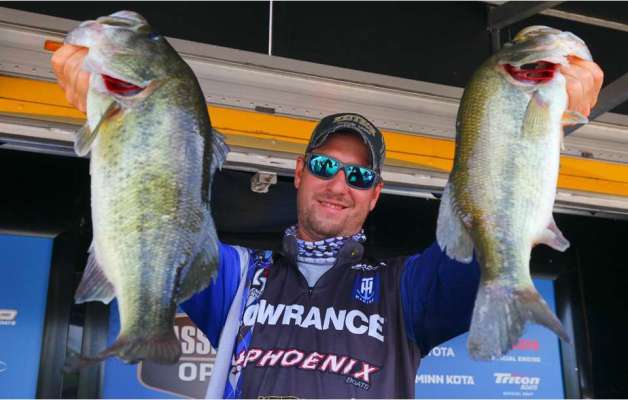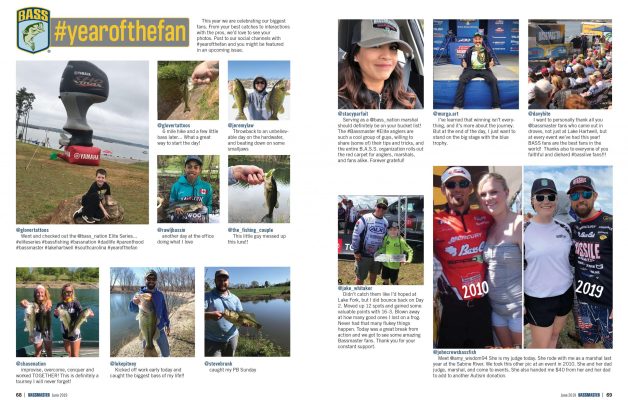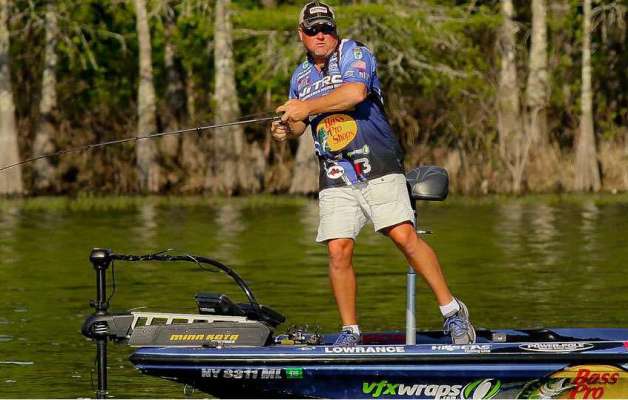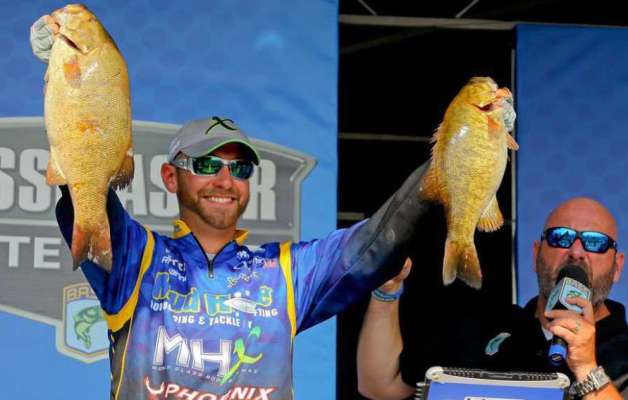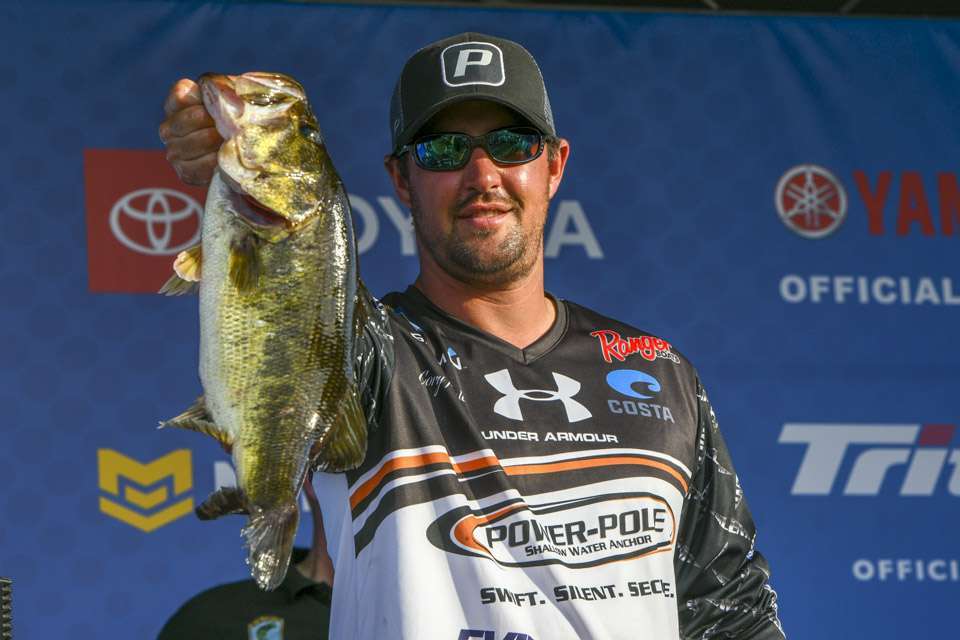
After high school, Cory Johnston had no interest in continuing his education. After all, he’d decided long ago what career path he would take. “I wanted to be a tournament fisherman my whole life. I remember watching Bassmaster on television and telling my Dad I want to do this to make a living,” he said.
He’d watch Denny Brauer work magic with his flipping stick and Rick Clunn mesmerize bass with a crankbait and dream about competing against them.
His dad, Lynn Johnston, consistently cashed checks fishing several tournament circuits in Ontario when Cory was growing up. More importantly, he exposed both Cory and his brother/fellow Elite angler Chris, to bass fishing. “Right from an early age we were in the bass boat practicing with him and learning everything he knew to that point and kept learning,” he said.
That said, the elder Johnston never pushed his love for fishing on his kids. “He let us do what we wanted to do. We were big time into hockey and lacrosse, but hunting and fishing as well. Eventually we wanted to be in the boat more than we want to play those other sports,” Cory said.
Johnston continued to play competitive senior-level hockey until it demanded too much of his time once he started fishing the FLW Tour. “Fishing was never really a question if we were going to do it or not, it was something that came naturally. We just weren’t sure to what extent,” he said.
The Johnston boys admit they were spoiled growing up being able to fish out of a bass boat ever since they started fishing. Once they got old enough to compete in the major Canadian tournaments that held big purses, their dad helped them to get their own boats. For a period, they were sponsored by an aluminum boat company, Lowe Boats, but once they began fishing larger bodies of water, they knew they needed a bigger boat with more horsepower to be competitive.
In doing so, their dad stepped away from the tournament scene so that both Cory and Chris could pursue their dreams.
Upon completing high school, he was eager to enter to enter the work force. He scored a good job with a major hydro company where he worked for eight years. He recalled getting permission to apply for a three-week leave of absence so that he could fish a pair of major tournaments. Two weeks into his leave, he received a letter in the mail stating that he’d been terminated. He decided to continue working at the family business, Peterborough Battery, and continue fishing competitively.
Anytime he’d broach the subject with his dad about pursuing his dream in the United States, his elder was quick to point out that no one in Canada had ever made a living strictly fishing tournaments. What would ever happen if the Canadian boys broke down?
It wasn’t until Chris fished his first event in the United States that they witnessed the support and tech crews provided by the major manufacturers to keep the anglers up and running. When the Johnstons considered fishing the Elites, they’d long heard about the support team at every Bassmaster event, which put their minds at ease.
The key to their tournament success in Canada was figuring out the smallmouth on many of the inland lakes that had consistently been dominated by largemouth.
The pivotal moment occurred when they were both vacationing at a cottage on Pigeon Lake, on the Kawartha chain of lakes. While fun fishing, they began catching giant smallmouth. Cory returned later to figure out the smallmouths for a tournament he and Dad were fishing four weeks later.
“We ended up winning that tournament with 10 smallmouth which hadn’t happened until then. One day we had 19 1/2 pounds of smallmouth, which was unheard of for largemouth either on the Tri-Lakes,” he said.
“Dad had so much knowledge, and we were doing well for years, so once we began expanding with our own theories, our success increased. When zebra mussels and gobies began impacting our lakes, we began thinking outside the box doing things differently that he and his partner, Bob Gardner, ever did. They flipped mats, docks and milfoil, which was the extent of it. We took the reins and expanded our skillset to include smallmouth which no one had really figured out yet,” Johnston said.
Growing up, they’d spent every waking moment on the water looking for hard bottom, sweet spots and obscure patterns their competitors hadn’t figured out yet. Johnston admitted that when they were younger, that’s they’d put in the legwork to amass the knowledge and skills to succeed in Ontario. “Today, all of our efforts and attention are directed to south of the border,” he said.
For Cory, fishing is and always has been a family affair. His dad taught him everything he knows, and he and his brother paired to form the most dominant team in Canadian tournament fishing history. That doesn’t mean they don’t keep each other on their toes.
“It’s always a rivalry regardless of what we’re doing, there’s always money on the line,” he said. “It’s great, we push each other to be better and help each other out which is especially advantageous when we’re practicing. It’s a great working relationship, great family relationship and our whole family is really close so it works awesome.”
Since Cory’s son Jack was born, it has become harder to roll out to a tournament. He credits his wife for keeping the ship afloat. “Kerrilee is super supportive and knows what she got herself into when we got married. It is not really different for a hockey or football player with life on the road. She’ll be able to bring Jack to some of the events, but she’s definitely played a role in some of our success,” he said.
Johnston is on a mission this year and ready to get to work. “Without a doubt, my goal is to win the AOY Title.”

